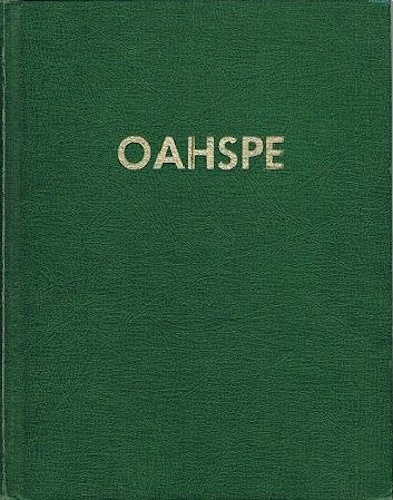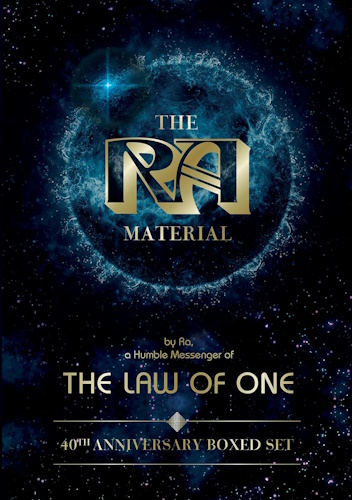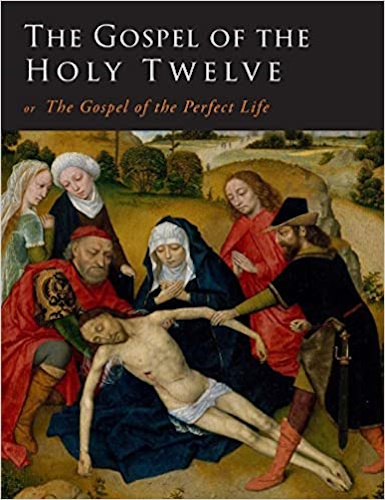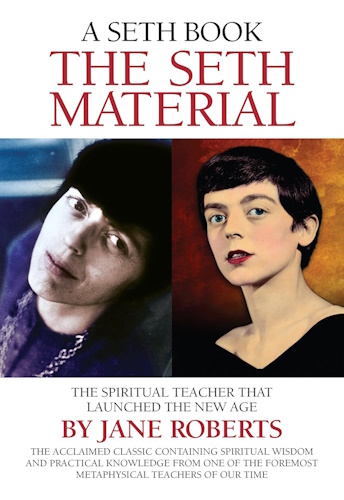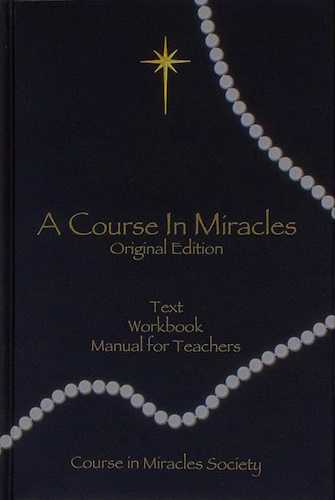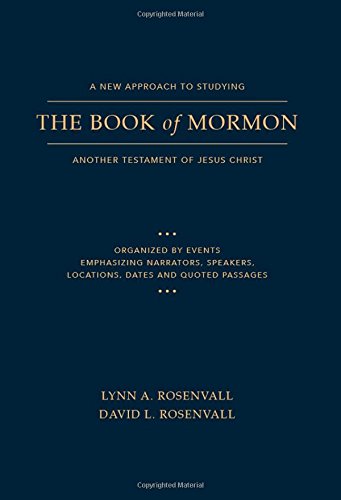
![]()
![]()
BOOK OF JEHOVIH'S KINGDOM ON EARTH,
Chapter XVIII
1. WHEN the groups were prepared to visit Uz, Tae himself took charge of one dozen, going with them. As the incidents of these visiting groups were similar, the following account of Tae's group sufficeth here, to wit:
2. Tae took them to the city of Meig, to the most fashionable hotels, and had them provided with every luxury, so-called.
3. Hardly had he them located, when they came before him, saying: Our rooms are small; the air of the city smells foul.
4. Tell us, what is the meaning, so many people strolling about in idleness? Why do they sit reading papers? Which are the masters, and which the servants? How do they know? Why do the servants not be masters, and have the others serve them? What beautiful wagons! What beautiful mirrors! What do the women have their clothes stuffed for? What are those bells ringing for? Are they in the temples of Jehovih? Take us thither! What causeth these disagreeable smells? See that old woman with a half naked babe, and leading that dirty child! Why holdeth she out her hand as we pass? Is she a servant or a master? Why hath not some one told the rich, it is wrong to pass that poor woman by without helping her to a home? Why does she not come into our hotel, and have a room? What do the people mean about rights and privileges? Can one person in Uz have more rights and privileges than another? And why so?
5. What is that sour smell, down yonder, in that cellar, where they talk so loud? What is sour beer? See, behold, a man with a bloody face! Fighting? What with, a tiger? Are those the flesh-eaters? Why do they smoke? Why hath not some one told them they should rather seek to purify themselves, than to do in the opposite way? O, here is the temple of worship, take us in!
6. Tae took them in, and they heard the sermon, and afterward, they said:
7. O the mystery of mysteries! How can these things be? The chief preached most excellently; he knoweth all the doctrines for right-doing; but why is it that his people heed him not? Why doth he not gather up little children, and raise them up to observe the commandments? He must be the best of men. Take us to see him.
8. Tae took them, but a servant met them at the gate, and demanded to know their business.
9. They answered: We have come to consult about the poor. Then the gate-keeper withdrew a while, but returned, saying: The preacher is not at home!
10. From an upper window, behind the lattices, they saw his face; not at home!
11. They said: Can these things be? O, take us to the poor; to the streets of misery! Let us see them.
12. Tae took them, and when they looked about, they asked: Why do the poor live in the dirty streets? Why
p. 826
do they not go away, and dwell in the beautiful places? Who gave these different allotments to the rich and poor? Why do the poor not clean themselves, and clean their clothes, and clean their houses? Why do the poor remain in the cities? And huddle together in such little rooms?
13. What is that large house? A theological college? What is that for? What is the meaning of, teaching religion? Can it be learned with words? What is the reason they do not live religion? Why hath not some one explained to the professors that religion is a thing of practice? Could not they understand? Why do they not love their neighbors as themselves? Dividing up what they have, with the poor? Why do these children go without shoes, and so ragged and dirty? Why do not the professors and students in the theological college go, and wash them and clothe them?
14. Thus, Tae took them amongst the fashion and splendor and amongst the poverty and shame of Uz; showing them the banks and great merchant houses, and the fleets of ships; and then to the prisons and poor-houses, and to the houses for the insane, and to the hospitals.
15. Now, since their infancy up, many of them possessed su'is, and could see the spirits of the dead, even as they saw mortals. And they inquired of Tae concerning such spirits, saying and inquiring:
16. Who are these restless, sullen spirits, strolling about the banking houses?
17. Tae answered them: These were bankers; these were the founders of great banking houses. As they bound their minds and thoughts to earthly gain whilst they were mortal, so drift they now, even as they bound themselves on earth. They can not go hence.
18. Again, they asked: Tell us, then, what spirits are these strolling sulkily in merchant houses and on the docks?
19. Tae said: These were great merchants and their ship-masters; behold, they float also into the places they bound themselves.
20. Tell us, then, who are these drunken, foul-smelling spirits in the saloons?
21. Tae said: These were tipplers, drunkards, gormandizers; these were their mortal resorts. They can not go hence.
22. Thus, Tae explained the tens of thousands of spirits that huddled around about the different places in the city of Meig, in the land of Uz.
23. Now, after the time of the visit was completed, Tae said unto them: What will you, remain in Uz, or return to Shalam?
24. And they answered: O, take us back; give us clear air to breathe; let us be where we can see and hear Jehovih!
25. But since thou and thy people gathered us up in Uz, and bore us hence, let us go and gather up infants also, and take them with us. We will raise them up in the Light of our Father in heaven.
26. So, in fact, did they; and they returned to Shalam, taking with them a great number of waifs and castaways and orphan babes.
-
Urantia Book, 44:0.11 - The Celestial Artisans
Never in your long ascendancy will you lose the power to recognize your associates of former existences. Always, as you ascend inward in the scale of life, will you retain the ability to recognize and fraternize with the fellow beings of your previous and lower levels of experience. Each new translation or resurrection will add one more group of spirit beings to your vision range without in the least depriving you of the ability to recognize your friends and fellows of former estates.
-
Princess Bride 1987 Wallace Shawn (Vizzini) and Mandy Patinkin (Inigo Montoya)
Vizzini: HE DIDN'T FALL? INCONCEIVABLE.
Inigo Montoya: You keep using that word. I do not think it means what you think it means. -
Urantia Book, 117:4.14 - The Finite God
And here is mystery: The more closely man approaches God through love, the greater the reality -- actuality -- of that man. The more man withdraws from God, the more nearly he approaches nonreality -- cessation of existence. When man consecrates his will to the doing of the Father's will, when man gives God all that he has, then does God make that man more than he is.
-
Urantia Book, 167:7.4 - The Talk About Angels
"And do you not remember that I said to you once before that, if you had your spiritual eyes anointed, you would then see the heavens opened and behold the angels of God ascending and descending? It is by the ministry of the angels that one world may be kept in touch with other worlds, for have I not repeatedly told you that I have other sheep not of this fold?"
-
Urantia Book, Foreword - 0:12.12 - The Trinities
But we know that there dwells within the human mind a fragment of God, and that there sojourns with the human soul the Spirit of Truth; and we further know that these spirit forces conspire to enable material man to grasp the reality of spiritual values and to comprehend the philosophy of universe meanings. But even more certainly we know that these spirits of the Divine Presence are able to assist man in the spiritual appropriation of all truth contributory to the enhancement of the ever-progressing reality of personal religious experience—God-consciousness.
-
Urantia Book, 1:4.3 - The Mystery Of God
When you are through down here, when your course has been run in temporary form on earth, when your trial trip in the flesh is finished, when the dust that composes the mortal tabernacle "returns to the earth whence it came"; then, it is revealed, the indwelling "Spirit shall return to God who gave it." There sojourns within each moral being of this planet a fragment of God, a part and parcel of divinity. It is not yet yours by right of possession, but it is designedly intended to be one with you if you survive the mortal existence.
-
Urantia Book, 1:4.1 - The Mystery Of God
And the greatest of all the unfathomable mysteries of God is the phenomenon of the divine indwelling of mortal minds. The manner in which the Universal Father sojourns with the creatures of time is the most profound of all universe mysteries; the divine presence in the mind of man is the mystery of mysteries.
-
Urantia Book, 1:4.6 - The Mystery Of God
To every spirit being and to every mortal creature in every sphere and on every world of the universe of universes, the Universal Father reveals all of his gracious and divine self that can be discerned or comprehended by such spirit beings and by such mortal creatures. God is no respecter of persons, either spiritual or material. The divine presence which any child of the universe enjoys at any given moment is limited only by the capacity of such a creature to receive and to discern the spirit actualities of the supermaterial world.
-
Urantia Book, 11:0.1 - The Eternal Isle Of Paradise
Paradise is the eternal center of the universe of universes and the abiding place of the Universal Father, the Eternal Son, the Infinite Spirit, and their divine co-ordinates and associates. This central Isle is the most gigantic organized body of cosmic reality in all the master universe. Paradise is a material sphere as well as a spiritual abode. All of the intelligent creation of the Universal Father is domiciled on material abodes; hence must the absolute controlling center also be material, literal. And again it should be reiterated that spirit things and spiritual beings are real.
-
Urantia Book, 50:6.4 - Planetary Culture
Culture presupposes quality of mind; culture cannot be enhanced unless mind is elevated. Superior intellect will seek a noble culture and find some way to attain such a goal. Inferior minds will spurn the highest culture even when presented to them ready-made.
-
Urantia Book, 54:1.6 - True And False Liberty
True liberty is the associate of genuine self-respect; false liberty is the consort of self-admiration. True liberty is the fruit of self-control; false liberty, the assumption of self-assertion. Self-control leads to altruistic service; self-admiration tends towards the exploitation of others for the selfish aggrandizement of such a mistaken individual as is willing to sacrifice righteous attainment for the sake of possessing unjust power over his fellow beings.
-
Urantia Book, 54:1.9 - True And False Liberty
How dare the self-willed creature encroach upon the rights of his fellows in the name of personal liberty when the Supreme Rulers of the universe stand back in merciful respect for these prerogatives of will and potentials of personality! No being, in the exercise of his supposed personal liberty, has a right to deprive any other being of those privileges of existence conferred by the Creators and duly respected by all their loyal associates, subordinates, and subjects.
-
Urantia Book, 54:1.8 - True And False Liberty
There is no error greater than that species of self-deception which leads intelligent beings to crave the exercise of power over other beings for the purpose of depriving these persons of their natural liberties. The golden rule of human fairness cries out against all such fraud, unfairness, selfishness, and unrighteousness.
